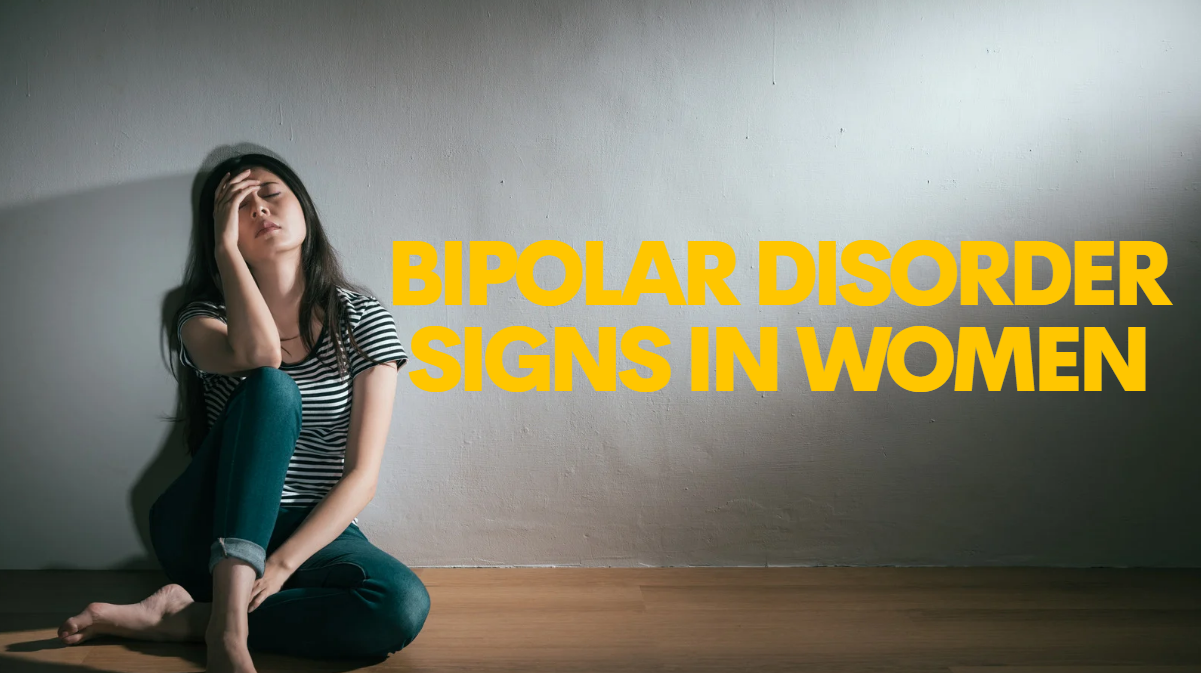Mental illness affects millions of people worldwide, yet many cases go undiagnosed because the mental illness symptoms and signs can be subtle or misunderstood. Recognizing these signs early is crucial—mental health is just as vital as physical health, and issues often show up in everyday behavior. Mental illness symptoms and signs are sometimes mistaken for stress, fatigue, or personality changes, which can delay needed care.
In this article, we’ll highlight the most common mental illness symptoms and signs you might encounter in daily life and explain when to seek help. Whether you’re facing your own challenges or supporting someone close to you, being aware of these signs can lead to early intervention and meaningful support.
What is Mental Illness?

Mental illness refers to a wide range of conditions that affect a person’s thinking, mood, behavior, and overall functioning. These conditions can range from mild stress or anxiety to severe disorders like schizophrenia or bipolar disorder. Regardless of severity, mental illness can disrupt daily life and affect a person’s ability to cope with everyday challenges.
Common types of mental health disorders include:
- Anxiety Disorders: Characterized by excessive worry or fear, such as generalized anxiety disorder, panic disorder, and social anxiety.
- Mood Disorders: Includes depression and bipolar disorder, which involve extreme changes in mood and energy.
- Obsessive-Compulsive Disorder (OCD): Involves persistent, unwanted thoughts and repetitive behaviors.
- Post-Traumatic Stress Disorder (PTSD): Occurs after exposure to a traumatic event, leading to flashbacks, nightmares, and heightened anxiety.
- Psychotic Disorders: Disorders like schizophrenia, marked by hallucinations and delusions, affect a person’s connection to reality.
The impact of mental illness can be significant, affecting emotional, physical, and social well-being. Early intervention and treatment, including therapy and medication, can improve outcomes. Recognizing symptoms early and seeking professional help is crucial to managing mental illness and improving quality of life. Mental health is just as important as physical health—don’t hesitate to seek support when needed.
Early Mental Illness Symptoms and Signs

Spotting the early signs of mental illness is key to seeking the right treatment before conditions worsen. However, many people may not realize that their emotional and behavioral shifts are signals that something is wrong. Below are some signs to watch for, as they may indicate mental health struggles.
1. Changes in Mood
A sudden shift in mood, such as frequent periods of sadness, irritability, or anger, may point to an underlying mental health issue. If someone who is usually upbeat becomes withdrawn or someone generally calm becomes easily agitated, it might signal anxiety or depression. These mood swings might last for an extended period and interfere with normal activities.
Signs to Watch For:
- Extreme highs and lows in mood
- Irritability or frustration over small matters
- Unexplained feelings of hopelessness or worthlessness
2. Excessive Worrying
We all feel anxious at times, but for some people, these feelings can become overwhelming. Persistent worrying, especially about events that haven’t happened yet, can be an indicator of an anxiety disorder. This constant state of heightened alertness can disrupt daily life, leading to trouble concentrating, sleeping, and even physical ailments like headaches and muscle tension.
Signs to Watch For:
- Intense or chronic worry about everyday tasks
- Restlessness or trouble relaxing
- Difficulty controlling anxiety or fear
3. Withdrawal from Social Activities
One of the most common signs of mental health struggles is isolation. People who are experiencing depression, anxiety, or stress may begin to withdraw from friends and family, avoiding social activities they once enjoyed. This isolation can worsen symptoms, eliminating opportunities for positive social interactions and support.
Signs to Watch For:
- Avoiding social gatherings or isolating from friends and family
- A disinterest in previously enjoyed activities or hobbies
- Increased time spent alone, avoiding contact with others
4. Fatigue or Lack of Energy
Mental illness often leads to emotional exhaustion, which manifests as physical tiredness. Individuals with depression or anxiety may struggle to find energy for everyday tasks, even if they’re well-rested. This fatigue can also interfere with motivation, causing an individual to neglect responsibilities or disengage from work and personal commitments.
Signs to Watch For:
- Extreme tiredness, even after adequate sleep
- Lack of interest or energy for daily tasks
- A noticeable decrease in productivity at work or home
5. Changes in Eating or Sleeping Habits
Mental illness can affect appetite, sleep patterns, and daily routines. People experiencing depression may overeat for comfort or lose interest in food altogether. Similarly, anxiety can cause difficulties falling asleep or staying asleep, leading to disrupted rest. These changes can lead to physical health issues, such as weight loss or gain, or chronic fatigue.
Signs to Watch For:
- Sleeping too much or not enough
- Overeating or loss of appetite
- Insomnia or waking up feeling unrested
6. Difficulty Concentrating or Making Decisions
Mental health issues, particularly anxiety and depression, can cause a “fog” in the mind, making it difficult to focus on tasks or make decisions. This might manifest as forgetfulness, inability to focus, or trouble completing even easy tasks. Cognitive difficulties like this can interfere with work and social obligations.
Signs to Watch For:
- Inability to concentrate for extended periods
- Forgetfulness or making mistakes at work or at home
- Trouble making even simple decisions
7. Substance Abuse
In some cases, people struggling with mental health issues turn to drugs or alcohol as a way to cope with their feelings. While this might offer temporary relief, it exacerbates the problem in the long run, leading to a dangerous cycle of dependency and worsening mental health symptoms.
Signs to Watch For:
- Increased use of alcohol or drugs to cope with stress
- Changes in behavior related to substance use
Difficulty controlling alcohol or drug consumption
8. Physical Symptoms Without a Clear Cause
Mental health disorders like anxiety and depression can often cause physical symptoms, such as headaches, stomach problems, and unexplained pain. These symptoms might not have an identifiable cause and may persist despite medical evaluations. It’s important to pay attention to recurring physical issues that don’t seem to have a physical basis.
Signs to Watch For:
- Unexplained headaches or digestive issues
- Muscle tension or back pain without injury
Chronic pain or discomfort with no clear cause
The Importance of Good Mental Health

Mental health is the foundation of a person’s overall well-being. It affects how individuals think, feel, and behave, influencing every aspect of life—from how they handle stress to how they relate to others and make choices. When mental health is strong, people are more resilient, productive, and capable of maintaining healthy relationships and physical health. Conversely, poor mental health can lead to emotional instability, physical illness, and impaired decision-making.
Factors That Influence Mental Health
Several key factors can significantly impact mental health:
- Genetics and Biology: A family history of mental illness can increase susceptibility, as can imbalances in brain chemistry.
- Life Experiences: Exposure to trauma, abuse, or prolonged stress can leave lasting psychological effects.
- Environmental Conditions: Work-related stress, financial instability, or lack of social support often exacerbate mental health issues.
- Physical Health Conditions: Chronic illness or disability can negatively influence mental well-being, creating a cycle of declining health.
Understanding these influences can help individuals recognize the root causes of mental health struggles and encourage proactive self-care and prevention strategies.
How to Help Someone with Mental Illness
Supporting someone with mental illness requires empathy and awareness:
- Offer Nonjudgmental Support: Listen actively without minimizing their experience.
- Encourage Professional Help: Suggest seeing a therapist or counselor and offer help finding resources.
- Avoid Enabling Harmful Behavior: Gently set boundaries while remaining supportive.
- Educate Yourself: Learning about the condition helps reduce stigma and foster understanding.
Why Trust Mental Health Professionals
Mental health professionals are trained to identify and treat a wide range of conditions using evidence-based methods. Whether through psychotherapy, medication, or holistic care, they offer structured support tailored to each individual’s needs. Confidentiality and ethical standards ensure a safe environment for healing, while multidisciplinary teams—including psychiatrists, psychologists, and social workers—collaborate to provide comprehensive care.
When to Act: Seeking Help for Mental Health

Recognizing when mental health symptoms have escalated from concerning to critical is essential. While many people experience stress, sadness, or anxiety periodically, certain signs indicate the need for immediate action and professional support.
Red Flags That Require Immediate Attention
Some mental health symptoms should never be ignored. These include:
- Suicidal Thoughts or Behaviors: Any expression of wanting to die, self-harm, or suicidal intent demands urgent intervention. This is a medical emergency.
- Hallucinations or Delusions: Seeing or hearing things that aren’t there, or holding false beliefs detached from reality, may indicate serious psychiatric conditions.
- Extreme Mood Changes or Aggression: Sudden, intense mood swings, rage, or violent behavior are signs that the person is not coping well and may pose a risk to themselves or others.
- Inability to Carry Out Daily Tasks: Struggling to maintain hygiene, eat, sleep, or perform work or school responsibilities can indicate a debilitating mental health issue that requires help.
How to Approach Someone Who Might Be Struggling
Approaching someone about their mental health requires sensitivity:
- Choose the Right Time: Find a private, calm moment when neither of you is rushed or distracted.
- Use “I” Statements: Speak from your perspective, e.g., “I’ve noticed you’ve seemed withdrawn lately,” rather than “You’re acting strange.”
- Avoid Confrontation: Express concern and support rather than judgment. Your role is not to diagnose, but to encourage them to seek help.
When and How to Involve Professionals
- Start with a Primary Care Doctor: They can assess symptoms and refer to appropriate specialists.
- See Mental Health Professionals: Therapists, psychologists, or psychiatrists offer evidence-based treatment tailored to the individual.
- In Emergencies: Contact local emergency services or mental health crisis hotlines immediately if someone is at imminent risk.
Debunking the Stigma
Seeking help for mental health is not a sign of weakness—it’s an act of strength and self-respect. Just like physical illness, mental health conditions are treatable, especially when addressed early. By promoting open conversations and compassionate action, we can reduce stigma and save lives.
Mental Health Matters
Recognizing the symptoms of mental illness in everyday life, such as changes in behavior, mood, or cognition, can be lifesaving. This article explored what mental illness is, its early warning signs, the importance of mental well-being, how to support someone struggling, and when to seek help. Understanding these elements is key to promoting early intervention and reducing the stigma surrounding mental health. Seeking help is a sign of strength. If you or your loved one is showing signs of distress, opting for the help of professionals is a game-changer. Stay Healthy! LLC is home to the most reliable and compassionate mental health professionals. We listen, support, and help alleviate emotional burdens with care. Contact us at (850) 329-2932.











